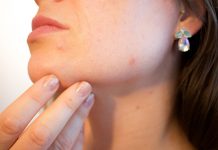For many women, the end of their menstruation cycles may be considered a relief. No more surprising messes that you need to deal with. No more excruciating cramps that made you immobile for at least a day. You’re free. Or are you?
After a woman has reached an undetermined age, menstruation ceases and menopause begins. For those who have yet to experience this stage in life, you likely have quite a few questions. What is it? What can you expect? This article will dig into the causes and symptoms during this phase of life.
What Is Menopause?
“Menopause typically occurs around the age of 45”
Every woman has likely heard of this stage in life. Yet what is menopause, exactly? This term covers the stage of life in which your period ends. It should be noted that your period has had to have stopped for at least a year to be considered in this next phase of life. This is because leading up to menopause, your period can still occur just far less common and typically for short durations. Once a year has passed and you didn’t receive a single period, you’ve officially reached the post-menopause part of your life.

It occurs when your ovaries stop producing two main hormones–estrogen and progesterone. Instead, small amounts of testosterone fill the body instead. The ability to conceive a child is, essentially, removed. Typically, this can occur around the age of 45. However, it can sometimes occur earlier or later in life. A typical good judge of when you’ll reach your menopausal period is when your mother did. Though this isn’t a rule of thumb.
Menopause Symptoms
Perhaps you’ve heard of the many unpleasant menopause symptoms that come with this phase of life. While some women receive particularly unpleasant symptoms, others do not. It’s difficult to determine whether you’ll receive certain symptoms over others. It may have to do with your genetics.
“Some of the most common symptoms typically only occur a year after your period has ended”
However, some of the most common symptoms typically only occur a year after your period has ended. You may start to experience hot flashes. This is essentially a moment in time when your body suddenly heats up and you break out into a sweat. Walking hand-in-hand with this is night sweats. You might find yourself waking up absolutely covered in sweat.

Mood swings are also quite common, particularly aggressive ones. This is likely attributed to the higher presence of testosterone in your body. It may also be triggered by your hot flashes because your irritation level has increased.
“Vaginal dryness is also something that you may experience which can make sex painful or unpleasant”
Besides that, you may find that it is more difficult to sleep at night. Insomnia is quite common for menopausal women. However, this symptom can go away over time. It’s also possible to use a sleeping aid. Vaginal dryness is also something that you may experience which can make sex painful or unpleasant.
Finally, you may also notice that your hair is starting to thin out and recede. Opposite of that, the hair on your face might grow and thicken.





















